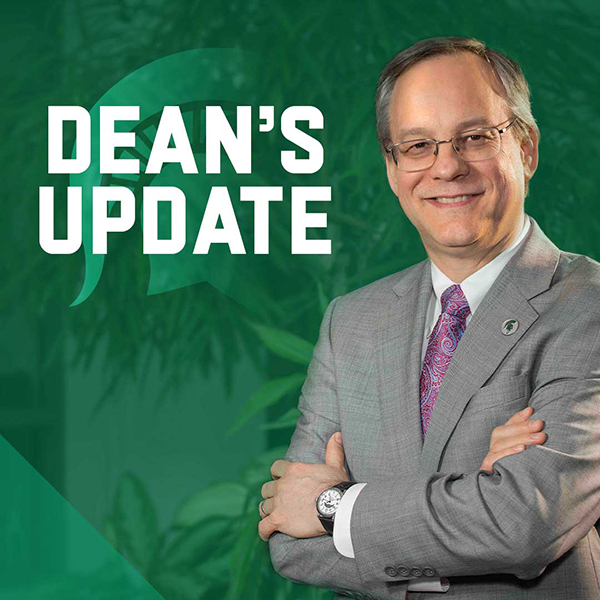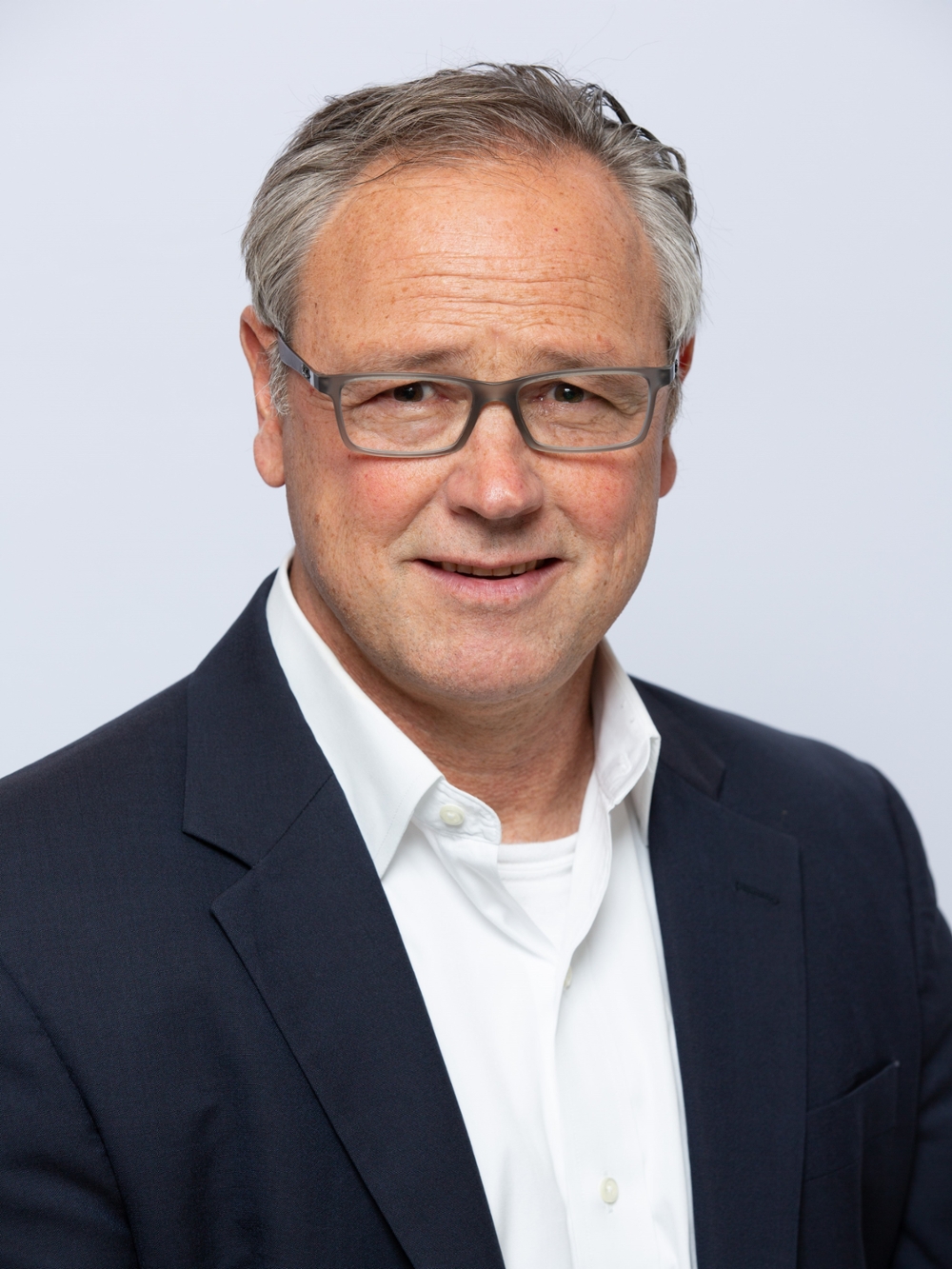Dean's Update
August 12, 2022 - Aron Sousa, MD
Friends,
This has been a big week for the college’s strategic planning effort. After months of meetings on Zoom, the Strategic Planning Task Force and its workgroups met in person for the first time in the whole process. I understand there were hugs.
 I could not attend the workgroup or task force meetings in person because I am still coughing and sputtering as part of my COVID experience. But they let me attend by video, and I felt the meetings were very productive. The five workgroups focused their discussions into goals and strategies around student success, faculty and staff success, the college’s identity and reputation (including research goals), a grand challenge, and clinical and community outreach. None of the goals are yet final, and there is still a good deal of work to do before we have a final strategic plan for consideration in October.
I could not attend the workgroup or task force meetings in person because I am still coughing and sputtering as part of my COVID experience. But they let me attend by video, and I felt the meetings were very productive. The five workgroups focused their discussions into goals and strategies around student success, faculty and staff success, the college’s identity and reputation (including research goals), a grand challenge, and clinical and community outreach. None of the goals are yet final, and there is still a good deal of work to do before we have a final strategic plan for consideration in October.
While I am not sure what will be in the final plan, the conversations have some exciting and interesting directions. The workgroups and task force are looking at many goals that will expand our work in health equity in areas of scholarship, education, and clinical activity. For those who have not been tracking the college closely over the last few years, our folks have been intensifying our health equity work through new and re-developed programs like the Leadership in Rural Medicine program, the Michigan State University-Hurley Pediatric Public Health Initiative, R2D2, and our Early Assurance Programs partnering with universities and community colleges including Mott, Grand Rapids, Northwestern Michigan, Bay, and Bay Mills.
We have too many health equity programs to list them all, but, if you have a little time, do poke around the Flint Center for Health Equity Solutions, the Maternal Health Racial Equity Project, the Latino Community Network Approach, Health Disparity in Cardiovascular Disease, and social epidemiology among others.
I believe many of the health equity ideas in the strategic planning effort will benefit not only our patients and communities, but our students, faculty, and university. As we bring public health and more traditional academic medicine closer together, we create new liminal spaces for our scholars to investigate.
The task force is also spending time on how we think of ourselves, as well as how the rest of the world thinks of us. I imagine there will be strategic efforts focused on our identity and our reputation. Much of what the larger world knows of us results from our broad participation in the scientific, social, and policy discussions of society.
The task force has considered strategies to advance the public intellectual work of our students, staff, and faculty. This issue is close to my heart. I see society’s response to the pandemic, climate change, violence, mental health access, and maternal/infant mortality disparities as indicators of how we do or do not engage science as a country. Some of our graduates will end up in communities where they have the highest level of education of everyone in town. Helping our people be effective public intellectuals is part and parcel of our impact on community health.
For all the discussions of public intellectual work and health equity, it is clear that core efforts in education, research, and clinical work will be the basis of the strategic plan. The workgroups have been developing strategies to help our people (students, staff, and faculty) be successful in all they do. The clinical success of the college is clearly recognized as a key part of how we do good in the world and how we continue to bolster the success of our students and faculty.
Any strategic plan from the college will have to respond to the university’s focus on growing research and, particularly, research supported by the NIH. Our strategic planning consultants have interviewed leaders at MSU, and it is clear those leaders view the college as key to the university meeting its goals to triple NIH funding in five years and reach a total of $1 billion in research expenditures by 2030.
 The next steps for the strategic planning task force include digesting the work of the week, beginning to focus on the core goals of the plan, and writing the document. I am deeply indebted to the work of Carol Parker and Kris Stroud in moving the process forward. My thanks to Alan Conceicao for managing the logistics of the meetings. It has not been easy to develop and implement a strategic planning effort across a disparate college like ours during the late phases of the pandemic, but Nicholas Williams and Michael Butler of HLA have been flexible, patient, and expert in their work. Thank you.
The next steps for the strategic planning task force include digesting the work of the week, beginning to focus on the core goals of the plan, and writing the document. I am deeply indebted to the work of Carol Parker and Kris Stroud in moving the process forward. My thanks to Alan Conceicao for managing the logistics of the meetings. It has not been easy to develop and implement a strategic planning effort across a disparate college like ours during the late phases of the pandemic, but Nicholas Williams and Michael Butler of HLA have been flexible, patient, and expert in their work. Thank you.
Congratulations to Mike Brown, MD, MSc, who will be the new University Physician. You may already know Mike as our chair of emergency medicine, and I am happy to confirm that he will continue his role as department chair. The University Physician job responsibilities have been restructured since our own Dave Weismantel, MD, MS, retired from the position in May. Serving as the chief public health officer of the institution, Mike will lead the planning and preparation for major public health issues and will coordinate the university response to those crises. However, the administration of the student health center is no longer the University Physician’s responsibility, which will allow Mike to continue as chair of the department. (Although his clinical rotations in the emergency department will take a hit.)
I do not suppose the University Physician is ever an easy job to take on, but starting up as omicron courses through the countryside and monkeypox moves toward a breakout has to be a particularly tough set of starting circumstances. Dr. Brown brings epidemiology expertise and scholarly strength to the role, both of which will serve him well. He is a wonderful colleague and leader in the college, and he has always been about serving the students, faculty, and community. I have every confidence Mike will be great in this role.
Serving the people with you,
Aron
Aron Sousa, MD FACP
Dean

